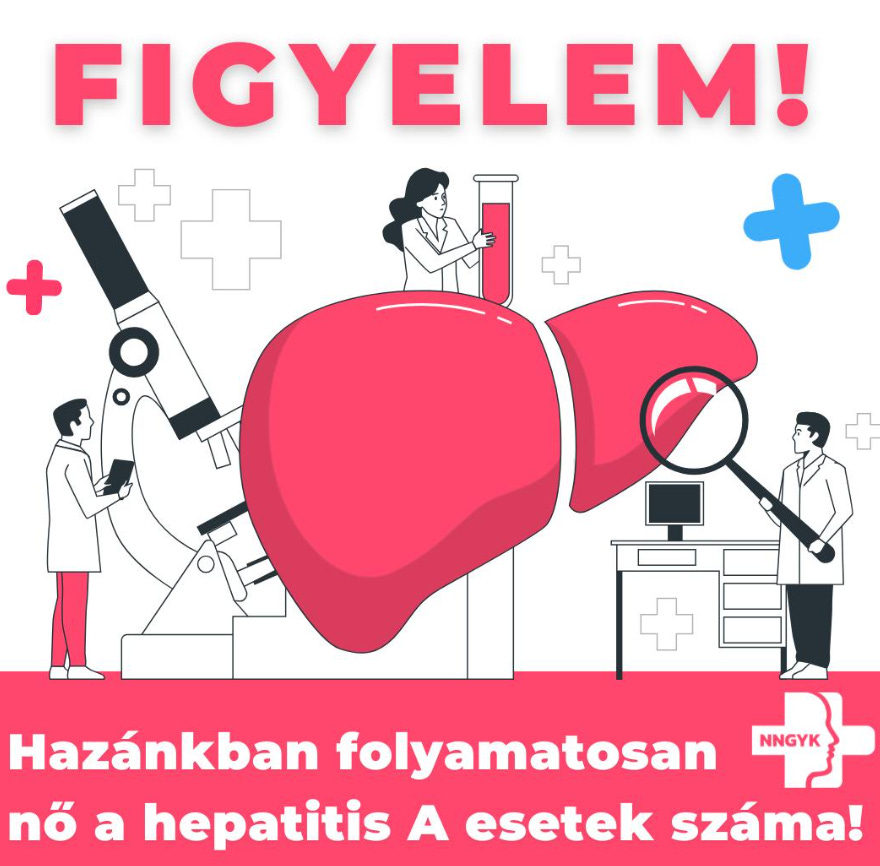In the first two months of the year, the number of patients reported with suspected hepatitis A infection increased sevenfold compared to the same period last year. The areas most affected by the epidemic are Budapest, Pest and Fejér counties.
The infection is expected to continue to spread, which is why the National Center for Public Health and Pharmacy (NNGYK) has asked healthcare professionals to consider this possibility when treating patients and to inform them about the spread of the virus and the possibilities of prevention.
The disease caused by the hepatitis A virus is rare in developed countries, but in developing countries it is considered a childhood disease that almost everyone overcomes as an adult.
The virus is spread through the feces of infected people, through close contact between people living in the same household, and through shared toilet use in communities. Infection can also occur through water contaminated with feces, ice, food sprinkled with contaminated water, or food touched with contaminated hands. In rare cases, the virus can also be transmitted sexually. Infection occurs more often in places with poor hygiene habits and where water purification and an adequate supply of clean water are not ensured.
The risk of spreading the infection can be reduced by thorough hand washing and disinfecting surfaces (sinks, toilets, doorknobs, light switches, etc.) with HYPO.
For those in risk groups at risk of infection, the hepatitis A vaccine, which can be purchased at pharmacies on prescription and for a fee, is recommended. Those at increased risk include those who travel to infected subtropical or tropical countries, live in or travel to places with inadequate hygiene conditions (e.g. pit latrines or lack of running water), or those with underlying medical conditions (e.g. hemophiliacs, chronic hepatitis B or C virus carriers). This also includes people who are at increased risk of hepatitis A infection due to their lifestyle (e.g. intravenous drug users, MSM population).
In order to prevent this, it is extremely important to follow proper hygiene rules, and vaccination is also available in pharmacies for a fee upon medical recommendation (with a prescription).





